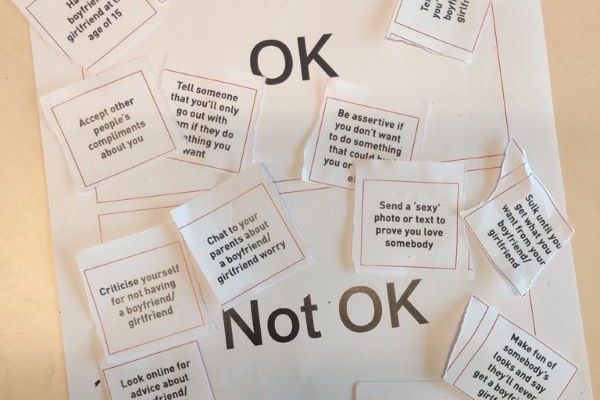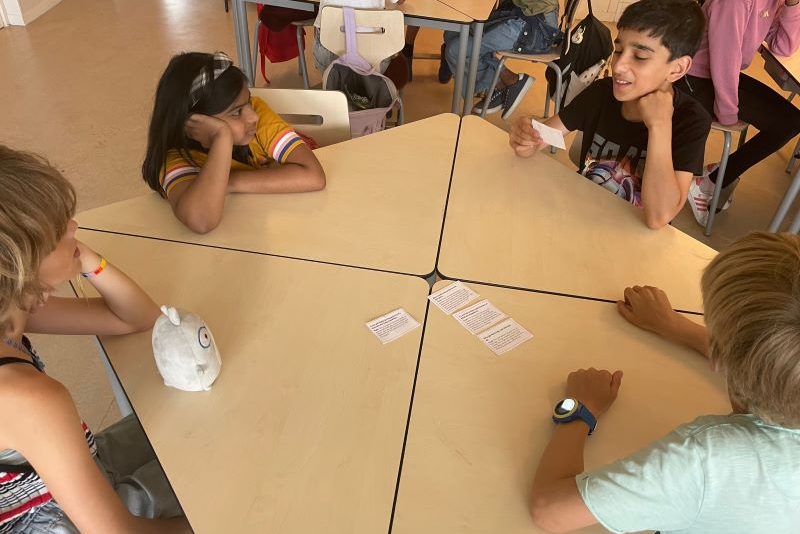Blush for Beginners
Discussing the topic puberty with students early on will help them understand and accept the natural changes their body goes through. At OIS, we use Jigsaw, our PHSE / Health and Well Being Scheme, to support and navigate through the topics.
By Kelly Hasker, Teacher Group 7 & Teamleader Milepost 3
Changing Me
For the last weeks of this term, we focus on the Jigsaw unit ‘Changing Me’. The unit discusses the changes in our bodies from babies to adults and transitions at different periods in lives, such as new schools, classes or countries.
In the older year groups this unit also discusses Puberty and Growing Up; focusing on the physical and emotional changes our bodies go through, conception and making the right choices as we get older and are given more responsibility.
When we start new units such as this one, sensitive topics and discussions are often covered and had. We therefore always ensure to inform our parents first. We initially do this with an parent introduction session in November and now give them a “heads up” before we discuss a new topic. It not only gives parents a chance to have a chat with their children if they wish and prepare them, but also to be prepared if a child might come home with questions or points they like to discuss further following the sessions at school. This unit in particular always makes for some interesting family dinner chat.

Blush for Beginners
Jigsaw units always begin with an assembly to introduce the theme that the children are about to explore. For our Group 7 students our “Changing Me” assembly was a little different. They had a visit from a Dutch theatre group, Theatergroep Zwerm, who performed a play called ‘Blozen voor Beginners’ (Blush for Beginners).
During the play, the actors told the story of two teenagers developing feelings for one another, beginning date and thinking about that first kiss. The performance explored what both characters were thinking and feeling and also how they could be influenced by outsiders, such as their friends and social media.
It was an engaging piece and the children participated in a game show style quiz about changes in our bodies during puberty. The original version of the performance ended quite negatively, so the students were asked to provide input on how they thought the situation in the play could be different. What different choices could the characters make and how they could be more thoughtful about their actions. The children worked together and came up with a positive and respectful ending for the story.

Even though some of the children initially thought the play would be embarrassing or even “cringy”, at the end they actually found it very insightful. This is what some of the children had to say;
- Saanvi said, “the performance taught us a lot about growing up and it was really helpful for us. GROW. Great. Respect. Opportunity. Wonderful.”
- Lara said, “Grown-ups we can act to be, but these strange things are new to me”
- Katie said, “It taught us how to deal with growing up”
- Sara said, “The play was wonderful and the actors were good at acting. The play showed us about puberty and to be careful not to rush things. It was a great introduction to puberty except for the love parts for the kids. It was great.”
- Diya said, “It was better than I thought. It taught us not to be jealous and not to lie to your friends just because you’re struggling with your own emotions.”
All in all, a highly-recommended, interactive performance that introduces the children to changes during puberty (physically and emotionally) but also gets them thinking about influences and decision-making.
